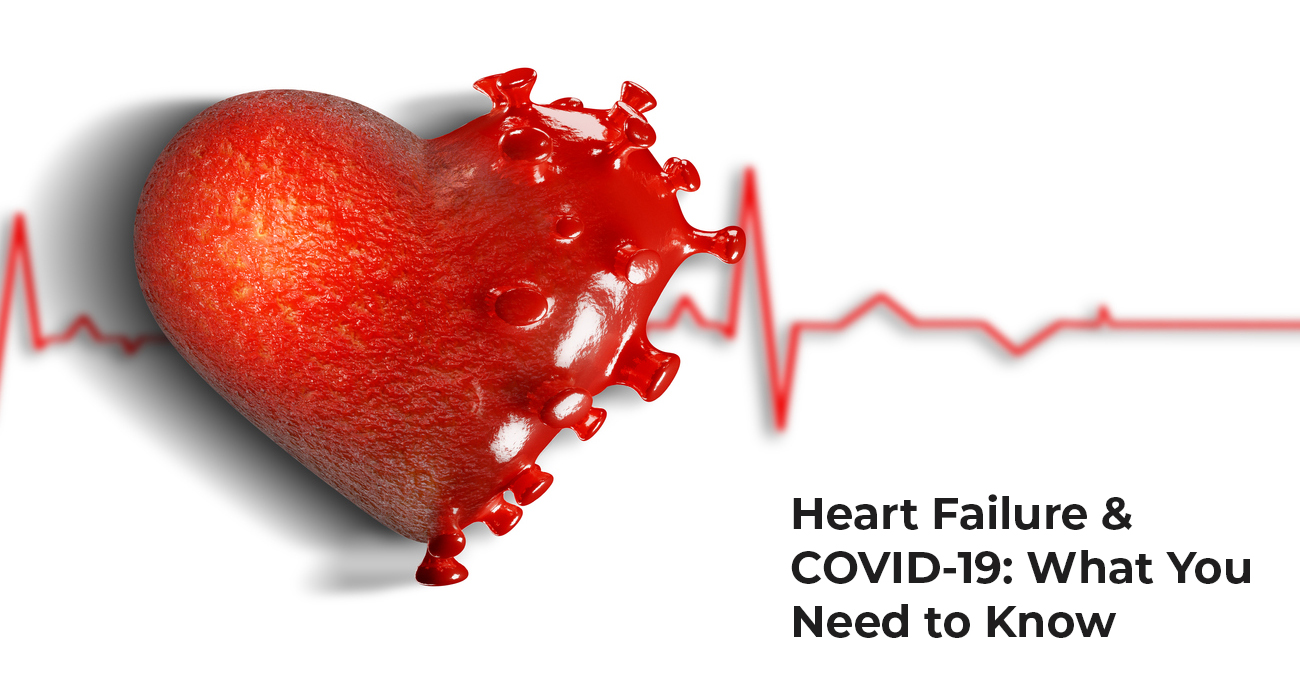Heart Failure and COVID-19: What You Need to Know
08/02/2021
While the wave of novel Coronavirus has slowed down a bit, it has affected millions of people and continues to cause many fatalities across the world. It has drastic impacts on the lungs and causes heart injury, even in individuals without underlying heart issues. Hence, the number of fatalities due to COVID-19 infection is still going up. Researchers have suggested that people who suffer from chronic diseases such as diabetes, heart failure, coronary heart disease, and cardiomyopathies are more at risk. People with a prior heart condition are more susceptible to COVID -19, which adversely affects the heart, leading to inflammation and even a heart attack. Furthermore, they may experience a wide range of complications even after recovery. Hence, the number of patients who require heart failure treatment in Jaipur has been higher compared to recent years.
What’s Heart failure and how’s COVID-19 connected with it?
Heart failure is a term we often hear, but most still confuse it with a heart attack. However, it's still as lethal as the latter. As the name suggests, the heart fails to perform its meticulous function in this condition. Hence, it won't pump an adequate supply of blood to the body. The lack of proper blood flow and optimum oxygen requirement disrupts the entire body system, which could be fatal to life. Heart failure can occur in any of its four chambers, the left atrium, right atrium, left ventricle and right ventricle. But its exact cause can originate from arteries carrying oxygenated blood, veins, aorta and capillaries.
According to recent reports, around 24 per cent of COVID-19 patients had initial symptoms of heart failure when they first got diagnosed with the virus. It's because COVID-19 causes extreme inflammation, which can rupture the fatty plaque buildup in arteries or veins, causing heart failures and stroke. Likewise, COVID drugs like steroids can also disrupt the effectiveness of heart disease drugs, according to the best doctor in Jaipur. Hydroxychloroquine is one such medicine that meddles the heart rhythm and deteriorates cardiomyopathy. Remdesivir, an antiviral drug, can cause low BP and heart rhythm disorders in heart patients, increasing the risk of heart damage and failure.
How to curb the threat of Heart failure?
Heart patients need to be more vigilant about their health during COVID times. It’s because when your heart is not functioning properly, it sends different warning signals that should not be ignored. These signs often include fatigue, heart palpitations, shortness of breath, irregular pulse and chest pain. So if you think you are experiencing any of these symptoms, consult a physician to get your heart checked promptly.
If they find anything suspicious, they’ll do an echocardiogram to diagnose your heart problem. It involves sound waves which creates a detailed picture of the heart. This makes it very easy for the doctor to study the condition of the heart with absolute detail. Hence, they’ll be able to plan an effective treatment plan for heart patients, even during the times of COVID-19.
What are the treatment options for Heart failure?
Doctors usually prescribe medications to control heart condition during its initial stages. But if the condition becomes severe, they’ll recommend surgery. Cardiac Surgery in Jaipur is world-class because of the topmost doctors and excellent hospital services and equipment. Some people require surgery to fully recover from heart failure. Coronary bypass surgery is very effective in such cases. In this, the doctor takes a healthy piece of the artery and attaches it to the blocked artery. This allows the blood to bypass the blocked artery and perform all the functions normally.
Angioplasty is another method that doctors use on patients with such conditions. In this procedure, a catheter with a small balloon attached is inserted into the blocked artery. Once the catheter reaches the blocked part, the surgeon inflates the balloon that opens the artery. The use of Pacemaker is another procedure adopted by doctors with severe patients.
Apart from these treatments, several eating and lifestyle habits play a major role in deteriorating the heart condition. People with sedentary jobs and minimum physical activity are at risk. Also, people that are regular smokers, drinking alcohol and consume high cholesterol-rich and fried food are at risk of increasing the problem.

